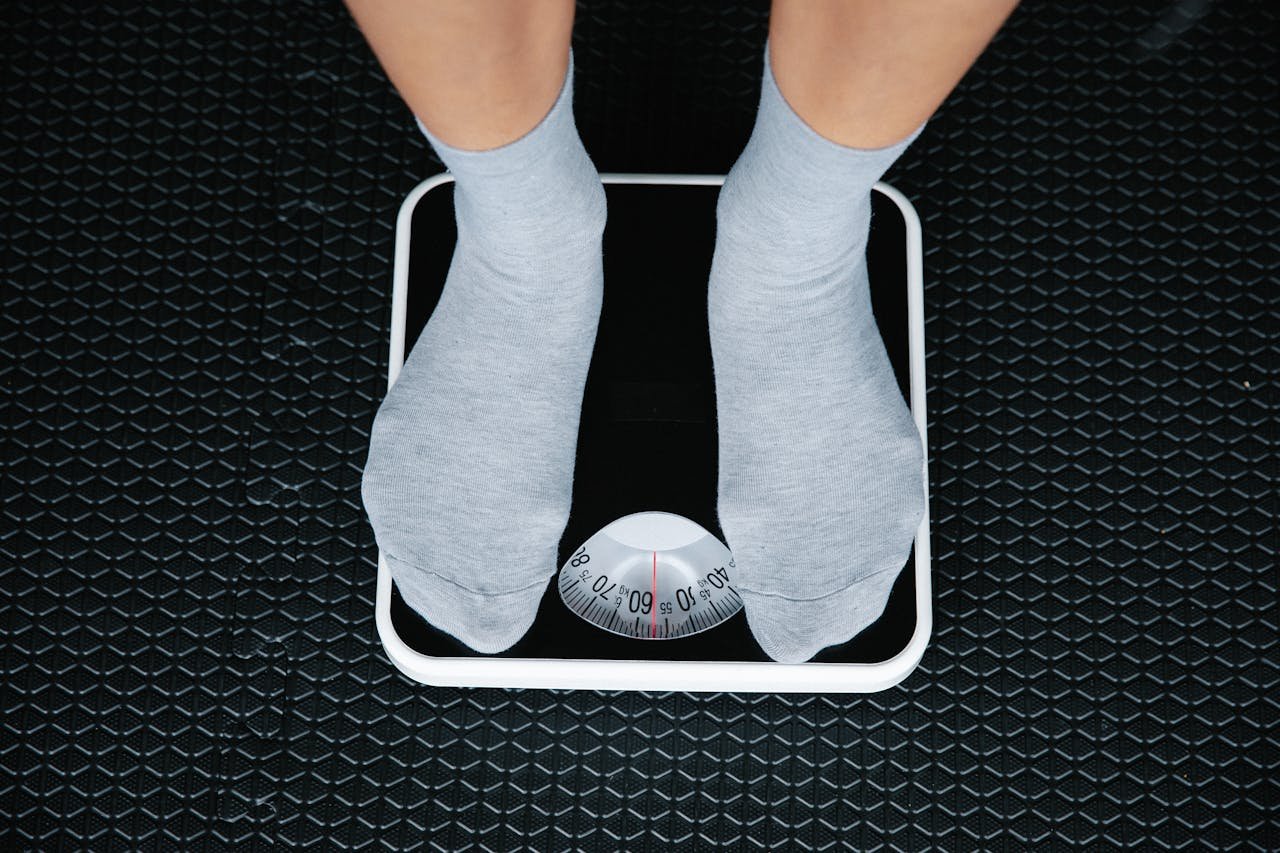Many people on a weight loss journey use the scale as a go-to tool for tracking progress. It’s easy to step on the scale and let that number dictate how we feel about our efforts. A lower number brings excitement, while a higher one can be discouraging. But what if I told you that the scale isn’t the best—or even the most accurate—measure of success?
Over the years, I’ve learned that the number on the scale doesn’t always reflect the hard work you’re putting in. Our bodies are complex, and weight fluctuates for various reasons unrelated to fat loss or gain. Understanding the scale’s limitations can help you break free from the emotional rollercoaster it often creates and shift your focus to more meaningful indicators of progress.
The Scale and Its Role in Weight Loss
We often picture a steady decline on the scale when we think about weight loss. But the reality is far different. Weight loss is rarely linear, and your body weight can fluctuate for reasons unrelated to fat.
What the Scale Really Measures
The number on the scale reflects your total body weight, which includes:
Fat
Muscle
Bone
Water
Digestive contents (food and waste)
Because of this, daily weight changes are entirely normal. Have you ever noticed that you weigh more after eating a salty meal or after a long weekend of indulgence? That’s likely due to water retention rather than actual fat gain. Similarly, if you sweat a lot during a workout, you might weigh less afterward—but that’s just fluid loss, not fat loss.
Why the Scale Can Be Misleading
If your goal is to lose fat and build muscle, the scale alone won’t tell you the whole story. Muscle is denser than fat, meaning you can gain muscle while losing fat and see little to no movement on the scale, or even an increase. But that doesn’t mean you’re not making progress! Many people experience body recomposition, shrinking in size and looking leaner, even if their weight stays the same.
Instead of getting frustrated by what the scale says, consider these other signs of progress:
How your clothes fit – If your jeans are looser or your shirt isn’t as snug, that’s a win.
Your strength and endurance – You’re getting stronger if you can lift heavier weights or run longer distances.
Your energy levels – Feeling more energized throughout the day? That’s a sign of improved health.
Your measurements – Tracking inches around your waist, hips, and thighs can show fat loss even when the scale doesn’t.
Why Weight Fluctuations Are Normal
You’re not alone if you’ve ever felt confused by your weight jumping up or down within a few days. These fluctuations happen to everyone and can be caused by several factors.
Water Retention
Water weight is one of the biggest culprits behind scale fluctuations. Your body holds onto water for various reasons, including:
Eating salty foods – Sodium causes water retention.
Hormonal changes – Women often experience weight fluctuations throughout their menstrual cycle.
Carbohydrate intake – Carbs store water in your muscles, so eating more carbs than usual can temporarily increase weight.
Dehydration – When you don’t drink enough water, your body holds onto what it has.
Hormones and Stress
Hormones play a crucial role in weight regulation. Cortisol, the stress hormone, can lead to fluid retention and increased appetite. If you’re feeling stressed or not getting enough sleep, your body might hold onto extra weight.
Food and Digestion
Your weight can change based on what’s in your stomach. The scale will increase if you weigh yourself right after eating a big meal, but that doesn’t mean you’ve gained fat. It just means there’s food in your digestive system that hasn’t been processed yet.
The Scale vs. Body Composition
Instead of relying on the scale alone, focusing on body composition—the balance of fat and muscle in your body is more useful.
Why Body Composition Matters More
Total weight doesn’t tell you whether you’re losing fat or muscle. Ideally, a good weight loss plan helps you lose fat while preserving muscle. The more muscle you have, the better your metabolism functions, making it easier to maintain a healthy weight.
Ways to measure body composition include:
Body measurements – Tracking inches lost over time.
Progress photos – Comparing pictures of yourself every few weeks.
How you feel in your clothes – A great non-scale victory.
Body fat percentage tests – Using tools like DEXA scans, calipers, or smart scales.
By shifting your focus to body composition rather than just weight, you’ll get a more accurate picture of your progress.
How to Develop a Healthier Relationship with the Scale
If you find yourself obsessing over the number on the scale, here are a few strategies to break free from that mindset:
Weigh Yourself Less Often
If the scale stresses you out, stop using it daily. Instead, check in once a week or less, at the same time of day (preferably in the morning, after using the bathroom). This will help you see trends over time rather than reacting to daily fluctuations.
Focus on Non-Scale Victories
Weight loss isn’t just about a number. Look for other signs of success:
More energy and better sleep
Improved mood and reduced stress
Increased endurance and strength
Clothes fitting better
Use Other Progress Tracking Methods
Take progress photos every few weeks.
Track your measurements (waist, hips, thighs, arms).
Keep a fitness journal to see improvements in your workouts.
Reframe Your Mindset
Instead of considering the scale, the ultimate judge of your success, remind yourself that it’s just one tool among many. Your health and well-being are more than a number—strength, confidence, and how you feel in your own skin matter so much more.
Final Thoughts: The Scale is Just a Tool
The scale is just one way to track progress, but it’s far from the best or the only way. Understanding that daily fluctuations are normal, that body composition matters more than weight, and non-scale victories are just as important can help you build a healthier relationship with your body.
If the scale has been a source of frustration, try shifting your focus. Celebrate the wins that truly matter—feeling stronger, having more energy, and making sustainable changes that improve your health. The journey to better health is about so much more than a number. It’s about becoming the best version of yourself, inside and out.




